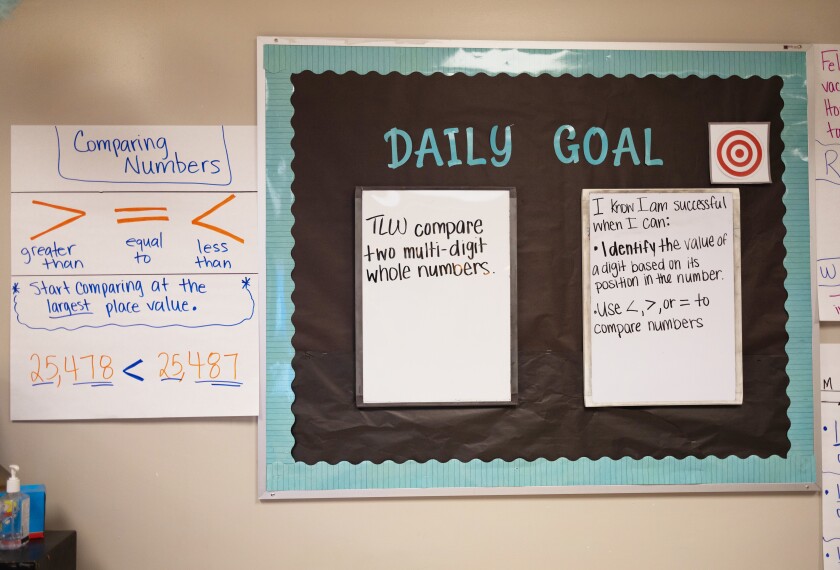To the Editor:
EdSource, an education nonprofit located in California, just released highlights from its recent report, “Gaining Ground in the Middle Grades: Why Some Schools Do Better.” This study is about algebra preparedness and success, and it provides insight into the achievement gap in terms of algebra. It has implications for every state (Report Roundup, Feb. 23, 2011).
What makes this study so informative is that California has a unique state test, the algebra California Standards Test, or CST, given typically in the 8th or 9th grade. No other state has the ability to provide this type of data and insight because no other state gives such a rigorous algebra test at these grade levels. So while the data are from California, the implications span the country.
Algebra is stressed in California. Instead of a grade-level state test, the state’s 8th graders take either a general math test or an algebra test, at the school’s discretion. On the one hand, students may take an algebra-prep course in grade 8, and then take the general math CST; a second option entails taking a rigorous algebra course in grade 8 followed by the algebra CST.
The findings of this study are that whites and higher-socioeconomic-status students were more likely to get that extra year of preparation in 8th grade before taking algebra. For example, among students scoring “high basic” in 7th grade on the state test, 49 percent of whites, 59 percent of African-Americans, and 62 percent of Hispanics took the algebra CST in 8th grade. Similarly, among students scoring high-basic in 7th grade on the state test, 45 percent of students from schools with a higher “school characteristic index” (basically, higher socioeconomic status, or SES) took the algebra CST in 8th grade, compared with 71 percent of lower-SES students.
So what was the outcome? As common sense would tell us, students who got that extra year of preparation were far more likely to be successful in algebra. For students who scored high basic in 7th grade and then got an extra year to prepare for algebra in 8th grade, only 7 percent scored far below basic or below basic on the 8th grade test. In contrast, the students who jumped ahead to algebra in 8th grade had a rate of 38 percent scoring at these lowest two categories. In lay terms, nonwhite and poorer students were far more likely to be put into a sink-or-swim situation, with the much higher probability of sinking.
Bernice German
Boulder, Colo.



